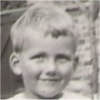 | Name: Francis Andrews
Overview: Dr. the Rev. Francis Andrews was diagnosed with diabetes on the day that war was declared in September 1939. He was the son of a doctor who`d worked as a medical officer in Flanders during the First World War. Francis also trained to be a doctor, and eventually became a consultant physician in rheumatology, having been advised not to specialise in diabetes. He married and has 6 children, 15 grandchildren and 1 great-grandchild, none of whom have diabetes. He took early retirement to train as a Catholic priest, and was ordained in 1994.
Hits=3 |
|
| 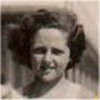 | Name: Ann
Overview: Ann came to England in 1945, and was diagnosed when the matron at her boarding school found her drinking the bath water. Her mother had worked as a nurse at Kings Hospital, London, and took her daughter there, to be treated by R.D. Lawrence (co-founder of the British Diabetes Association, now Diabetes UK). She has memories of being made to go into a hypo, of glass syringes, thick needles, and embarrassing urine tests. She worked as an occupational therapist, and brought up two children alone. Despite eyesight problems, she now makes a living as an artist.
Hits=3 |
|
|  | Name: Mushtaq
Overview: Mushtaq was in business until he gave up work, aged thirty, to look after his parents full-time. Both parents had Type 2 diabetes and they had managed well, until his mother developed Alzheimers and his father manic depression. He finds that mental illnesses and diabetes affect each other greatly, but he has difficulty in persuading specialists in these fields to consult each other. He earns far less than he did in business and does it for love, but wishes that the government could pay a little more, in recognition of how much money is saved by family members` full-time care.
There is also an interview with Mushtaq`s sister, Shanaz.
Hits=3 |
|
| 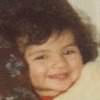 | Name: Emma
Overview: Emma`s mother, Bena, was diagnosed with diabetes in Uganda in 1965 and came to England when her family was expelled by Idi Amin. She married an Englishman, Terry, and had two children – Emma and her younger sister. When Terry was at work, Emma and her sister had to cope from an early age with their mother becoming unconscious. Her sister has now married and left home, but Emma still lives with her parents and was often phoned at work when her mother passed out – until her mother attended a DAFNE course and gained better control of her diabetes.
There are also interviews with Emma`s mother, Bena, and her father, Terry.
Hits=3 |
|
|
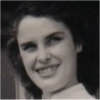 | Name: Grace
Overview: When Grace was diagnosed at the age of 15 her father was working for the Forestry Commission and they lived in a remote Suffolk wood. She was ill for months before diagnosis and thinks this was partly because they lived 4 miles from a GP and 20 miles from a hospital, and because her mother couldn`t face having another sick child after Grace`s sister died from leukaemia. Grace had early cataracts and was registered blind in her teens, but successful treatment throughout the rest of her life has meant that she has always had vision in at least one eye.
Hits=3 |
|
| 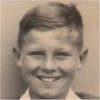 | Name: Ian Vokins
Overview: Ian Vokins was diagnosed shortly after leaving junior school and when he joined his secondary modern school, he was treated `like an alien` and fed dried apricots at every school dinner for 3 years! He was bullied throughout his school-days and left as soon as he could, aged 15. After that, life `seemed to open up` and he `started learning` while he worked as a technician in fields as diverse as atomic energy, cryogenics, orthotics, packaging, and space science. His work often took him abroad, and he says that diabetes hasn`t stopped him doing anything, apart from flying aeroplanes!
Hits=2 |
|
|
 | Name: Clive B
Overview: Clive`s wife, Joan, was diagnosed with diabetes when she was four years old, in 1945. They married when she was nearly 21 in 1962 and had one son. Clive knew little about diabetes when they married but felt it was essential to learn, because when Joan had a hypo, she needed his help to recover. He has always been on the look-out for warning signs and has also supported her through miscarriages and depression. He thinks that coping with diabetes has strengthened their marriage. Had he known what he was taking on, `I`d still do the same thing again tomorrow`.
There is also an interview with Clive`s wife, Joan B.
Hits=2 |
|
| 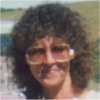 | Name: Mary Potter
Overview: Mary Potter`s daughter, Joanne, developed symptoms of diabetes in 1978, when she was five. Her GP refused to believe she had diabetes and Joanne nearly died. This traumatic beginning left a legacy of anxiety and anger. Mary noticed that another mother of a diabetic child was more laid-back than she was. She also noticed that when a niece was diagnosed around ten years later, there was much more specialist help and information available. Mary still sometimes accompanies Joanne to diabetic clinics. Joanne hates clinic visits because she feels that doctors treat her like a child and make her feel guilty.
There are also interviews with Mary Potter`s daughter, Joanne Pinfield, and with Joanne`s husband, Nick Pinfield.
Hits=2 |
|
|
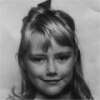 | Name: Clare
Overview: Clare was brought up in a remote Cornish hamlet. Although she developed Type 1 diabetes around the age of 5, she was not given insulin until about 4 years later and was instead kept on a near-starvation diet. She rebelled for many years and only began to take care of herself after she was registered blind in 1984. She went on to gain a second BA, MA and PhD and is now a university research fellow. She has been helped by coming to regard her lack of sight as `an issue around social equality as opposed to a medical issue`.
Hits=2 |
|
|  | Name: Greg
Overview: Greg was brought up in Chelsea, attended art college and got a job at the British Museum, where he met Harriet, who`d had diabetes since she was twelve. They married in 1978 and had two children, Dan and Grace. Harriet managed her diabetes well and Greg was not greatly involved, except during her pregnancies. He felt a greater weight of responsibility when Grace was diagnosed - first with diabetes, aged nine in 1999, then with epilepsy, aged ten. He says that he sleeps on a knife-edge: `You listen for every sound that`s happening in the night`.
There is also an interview with Greg`s wife, Harriet.
Hits=1 |
|
|
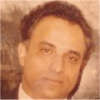 | Name: David
Overview: David`s father was a Fijian doctor whose work took him all round the Fiji islands. David himself managed a small post office before coming to England in 1959. His wife and baby son joined him later and they had six more children. He had converted from Methodism to his wife`s Catholicism and his children attended Catholic schools in Birmingham. He worked long hours to support them, as a telecommunications engineer, until he retired at the age of 60. He used to dream of returning to Fiji but now feels he couldn`t leave his children and grandchildren.
Hits=1 |
|
| 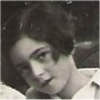 | Name: Erika Harding
Overview: Erika Harding`s father was Jewish and, in 1939, after the Nazis invaded Austria, she came by boat to England. When she looks at her photo of the thin, hollow-eyed little girl on the boat, she`s sure that she already had diabetes. After diagnosis, she was treated at King`s College Hospital, London, by R.D. Lawrence (co-founder of the British Diabetes Association, now Diabetes UK). She left grammar school at 18 and worked as a medical laboratory scientist until she retired. She and her artist husband have both played in many chamber music ensembles.
Hits=1 |
|
|
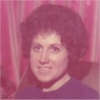 | Name: Shirley
Overview: Shirley left school at 16 and worked for the Inland Revenue until retirement. When she was diagnosed, her mother was very ashamed. Shirley looked after her parents until they died and then lived alone. She has had to cope alone with severe hypos, but says that living alone makes it easier to keep to a strict diet. She feels that her diet has made her healthier than she would have been if she hadn`t had diabetes. She has a low opinion of doctors, apart from a few consultants, but likes the group meetings held nowadays by specialist nurses.
Hits=1 |
|
|  | Name: Edward Walsh
Overview: Edward Walsh was the son of a village baker. He left school at 15 and trained as an electromechanical engineer. He always had a weight problem but played a lot of sport and felt he had a sensible diet, so was disappointed and upset when he was diagnosed at the age of 50. He controlled his diabetes with diet only, then tablets, then insulin from 2000 but had a remarkable period of 3 months in 2002 when he was able to give up insulin altogether, while working on a contract in French Guyana.
Hits=1 |
|
|
 | Name: Nick Pinfield
Overview: Nick Pinfield`s wife, Joanne, has had diabetes since she was aged five in 1978. He met her around 1998 at a giftware factory - where he was soldering pewter and she was painting it - and they married in 2002. They now run a limousine business and their decision not to have children is unconnected with diabetes. Unlike Joanne`s mother who saw her have severe hypos, Nick has only known Joanne since she has been managing her diabetes well and it has had little effect on their lives together. However, he does accompany her to all medical appointments.
There are also interviews with Nick Pinfield`s wife, Joanne Pinfield , and with his mother-in-law, Mary Potter.
Hits=1 |
|
|  | Name: Zin Cherry
Overview: Zin`s daughter, Emma, was diagnosed with diabetes at the age of 10, in 1988. While Emma says that after the shock of diagnosis her parents were `really laid back,` Zin remembers a time of high anxiety. However, she managed to hide her worries from Emma and was supported for several years by a very reassuring Diabetes Specialist Nurse called Sally Strang. Emma is well and happy - and her mother`s only regret is that she sometimes spoilt her and didn`t pay enough attention to her sister`s feelings. Nowadays, Zin thinks that diabetes `doesn`t seem such a big deal at all`.
There is also an interview with Zin`s daughter, Emma .
Hits=1 |
|
|
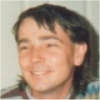 | Name: Philip Newick
Overview: Philip Newick comes from a working-class Bristol family which was greatly affected by redundancies in the aircraft industry. Determined to escape such insecurity, he did a degree and postgraduate work in chemical engineering. He worked for HJ Heinz until after diagnosis, when he was told that he could no longer work abroad. He then got a job nearer to his home in Birmingham and all his treatment has been in that city. He and his wife still weigh and measure all his food and he has few health problems - apart from an inability to detect the onset of hypos.
Hits=1 |
|
| 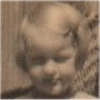 | Name: Margaret Elliott
Overview: Margaret Elliott`s newly-qualified local doctor diagnosed diabetes as soon as he walked through her front door - from the smell of acetone. Her family was poor but managed to pay for some medical care through a thrift club. Her parents did her injections for her and her husband did them after she married at 20. She was advised not to have children, but had 3 normal births and one caesarean. She attributes her good health to her husband`s care and a very strict diet. She has smoked 6 or 7 cigarettes a day since she was 14.
Hits=1 |
|
|
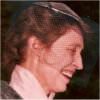 | Name: Beryl Smith
Overview: Beryl Smith first met children with diabetes when she was a student nurse and junior staff nurse at Birmingham Children`s Hospital from 1953 to 1957. She gave up nursing after she got married and didn`t encounter diabetes again until her own daughter, Catherine, was diagnosed in 1964, at the age of five. Catherine had so-called ‘brittle` diabetes, with frequent hypos – until she received two islet transplants in 2006/7. Beryl`s husband, David, developed Type 2 diabetes in 1983. At first he was on tablets, but was able to manage on diet alone after he lost four and a half stone.
Hits=1 |
|
| 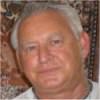 | Name: David M
Overview: David met Patsy while working as a tea-planter in India and came to England after their marriage in 1966, to escape the prejudice they`d encountered because Patsy was Anglo Indian. He worked as a prison officer, then prison governor until retirement at 60. Patsy developed diabetes in 1985 and they managed well until she had a stroke in 1999 and needed full-time care. He doesn`t want respite care, because he wouldn`t enjoy holidays without her, but he would like the Carer`s Allowance that was stopped when he got his pension, because `people who care for people…save the country a fortune`.
Hits=1 |
|
|
| Search returned 34 matches |